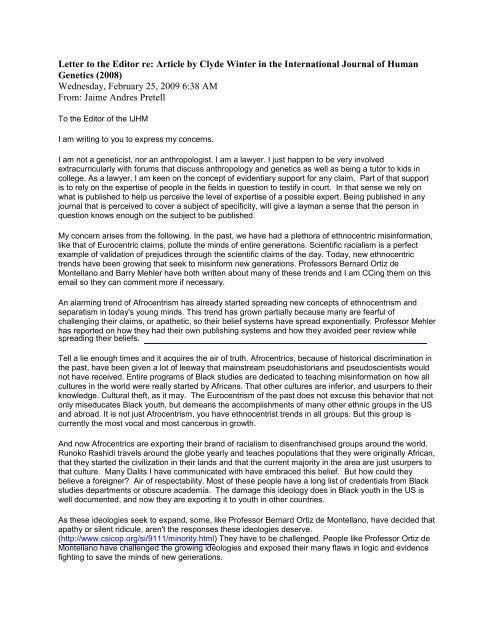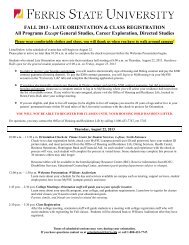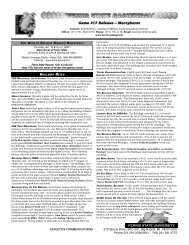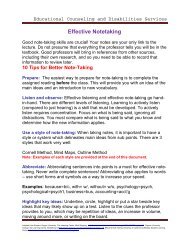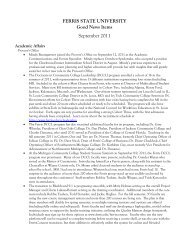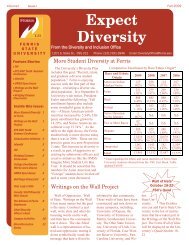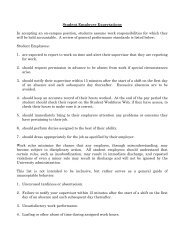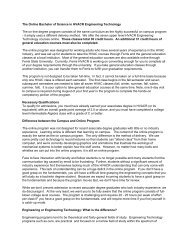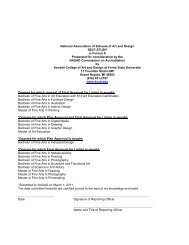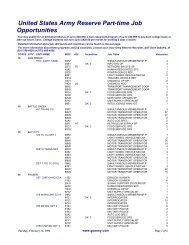Jaime Pretell
Jaime Pretell
Jaime Pretell
You also want an ePaper? Increase the reach of your titles
YUMPU automatically turns print PDFs into web optimized ePapers that Google loves.
Letter to the Editor re: Article by Clyde Winter in the International Journal of Human<br />
Genetics (2008)<br />
Wednesday, February 25, 2009 6:38 AM<br />
From: <strong>Jaime</strong> Andres <strong>Pretell</strong><br />
To the Editor of the IJHM<br />
I am writing to you to express my concerns.<br />
I am not a geneticist, nor an anthropologist. I am a lawyer. I just happen to be very involved<br />
extracurricularly with forums that discuss anthropology and genetics as well as being a tutor to kids in<br />
college. As a lawyer, I am keen on the concept of evidentiary support for any claim. Part of that support<br />
is to rely on the expertise of people in the fields in question to testify in court. In that sense we rely on<br />
what is published to help us perceive the level of expertise of a possible expert. Being published in any<br />
journal that is perceived to cover a subject of specificity, will give a layman a sense that the person in<br />
question knows enough on the subject to be published.<br />
My concern arises from the following. In the past, we have had a plethora of ethnocentric misinformation,<br />
like that of Eurocentric claims, pollute the minds of entire generations. Scientific racialism is a perfect<br />
example of validation of prejudices through the scientific claims of the day. Today, new ethnocentric<br />
trends have been growing that seek to misinform new generations. Professors Bernard Ortiz de<br />
Montellano and Barry Mehler have both written about many of these trends and I am CCing them on this<br />
email so they can comment more if necessary.<br />
An alarming trend of Afrocentrism has already started spreading new concepts of ethnocentrism and<br />
separatism in today's young minds. This trend has grown partially because many are fearful of<br />
challenging their claims, or apathetic, so their belief systems have spread exponentially. Professor Mehler<br />
has reported on how they had their own publishing systems and how they avoided peer review while<br />
spreading their beliefs.<br />
Tell a lie enough times and it acquires the air of truth. Afrocentrics, because of historical discrimination in<br />
the past, have been given a lot of leeway that mainstream pseudohistorians and pseudoscientists would<br />
not have received. Entire programs of Black studies are dedicated to teaching misinformation on how all<br />
cultures in the world were really started by Africans. That other cultures are inferior, and usurpers to their<br />
knowledge. Cultural theft, as it may. The Eurocentrism of the past does not excuse this behavior that not<br />
only miseducates Black youth, but demeans the accomplishments of many other ethnic groups in the US<br />
and abroad. It is not just Afrocentrism, you have ethnocentrist trends in all groups. But this group is<br />
currently the most vocal and most cancerous in growth.<br />
And now Afrocentrics are exporting their brand of racialism to disenfranchised groups around the world.<br />
Runoko Rashidi travels around the globe yearly and teaches populations that they were originally African,<br />
that they started the civilization in their lands and that the current majority in the area are just usurpers to<br />
that culture. Many Dalits I have communicated with have embraced this belief. But how could they<br />
believe a foreigner? Air of respectability. Most of these people have a long list of credentials from Black<br />
studies departments or obscure academia. The damage this ideology does in Black youth in the US is<br />
well documented, and now they are exporting it to youth in other countries.<br />
As these ideologies seek to expand, some, like Professor Bernard Ortiz de Montellano, have decided that<br />
apathy or silent ridicule, aren't the responses these ideologies deserve.<br />
(http://www.csicop.org/si/9111/minority.html) They have to be challenged. People like Professor Ortiz de<br />
Montellano have challenged the growing ideologies and exposed their many flaws in logic and evidence<br />
fighting to save the minds of new generations.
This is where journals such as yours come in. As these ideologies have come under challenge,<br />
Afrocentrists have sought to expand the air of respectability of their claims. Claims that mainstream<br />
scientists easily scoff at and ignore. But the mainstream youth is not academia and they do not have the<br />
luxury of in depth education to be able to critically appraise the claims. So now many pseudoscientific<br />
writers are seeking to validate their claims by publishing in peer reviewed media, or at least anything that<br />
gives an air of being peer reviewed by experts in the field.<br />
Let me make this clear, they are not trying to convince the academics that read the peer reviewed media.<br />
They use the published media as sources when they do presentations in mainstream uneducated<br />
audiences. When someone challenges their claim, they can say, well, as it says in this article in the<br />
IJHG, Dravidians are recent African migrants, so it must be true.<br />
Don't get me wrong, I am glad they are being published so they can encounter public scrutiny by<br />
academics that can refute them, but only if academics take the time to refute them. Now in some journals<br />
that are peer reviewed, some scientists, like Dr. Toomas Kivisild have challenged such publishings,<br />
because such mechanisms for submission of commentaries on articles are in place. Where people can<br />
either add commentaries to the article before it is even published so the reader gets academic feedback<br />
on the article from the moment they read it, or commentary is allowed and encouraged in the subsequent<br />
issue. I am not sure I see this mechanism in place in your journal.<br />
I am still trying to find out if your journal allows for peer review of articles posted, or if it is just apathy from<br />
the scientific circles reading the articles. Every scientist I have referenced the article has scoffed at it. Yet<br />
I see no published commentary challenging the claims, ala Kivisild et al in BioEssays on another of Mr.<br />
Winters publishings.<br />
I seriously hope that this journal pursues a mechanism where readers can become avid critics, and<br />
submit commentaries both positive and negative of published articles so that the uninformed reader can<br />
get a sense of the acceptance by the academic community of the claims espoused in each article.<br />
I see Clyde Winters has already found his niche in this journal as he has two more articles pending<br />
publishing. I hope that his claims will at least be followed by commentaries by experts in the fields he is<br />
claiming knowledge about. A journal is only as good as the strength of the peer review culture it contains.<br />
If not the apathetic silence is just condoning of the claims made and the perpetuation of mythology that<br />
harms communities around you.<br />
Sincerely,<br />
<strong>Jaime</strong> Andres <strong>Pretell</strong><br />
Atlanta, GA<br />
The article in question<br />
Clyde Winters Response<br />
2


